Sci-Fi’s Most Overused Trope Is Choking The Genre, Needs To Go Away
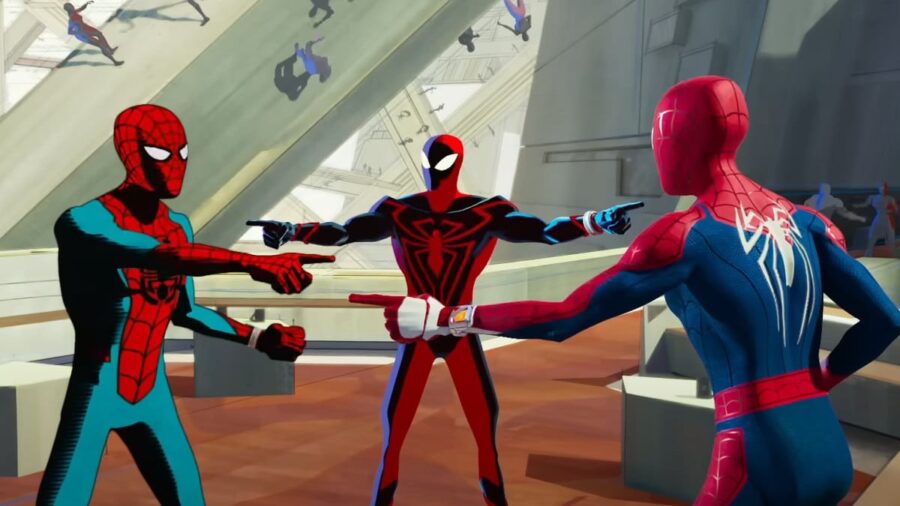
Multiverses are everywhere these days. What was once a sci-fi trope only found in the pages of Marvel and DC comics has spread like a weed into every fandom. Like all weeds, the multiverse trope is choking the life out of the sci-fi/fantasy genre and preventing it from growing. The concept of infinite versions of each fandom with infinite variants of every character cheapens stories and erases any dramatic stakes.
Take the MCU, for instance. Loki’s death at the beginning of Avengers: Infinity War had an emotional heft to it—despite their differences, Thor truly loves his misfit brother, and seeing the god of mischief murdered right in front of him tortures his very soul. But surprise! Thanks to the multiverse sci-fi trope, there are billions upon billions of Lokis, so many that some of them have silly little outfits, and one is even an alligator!
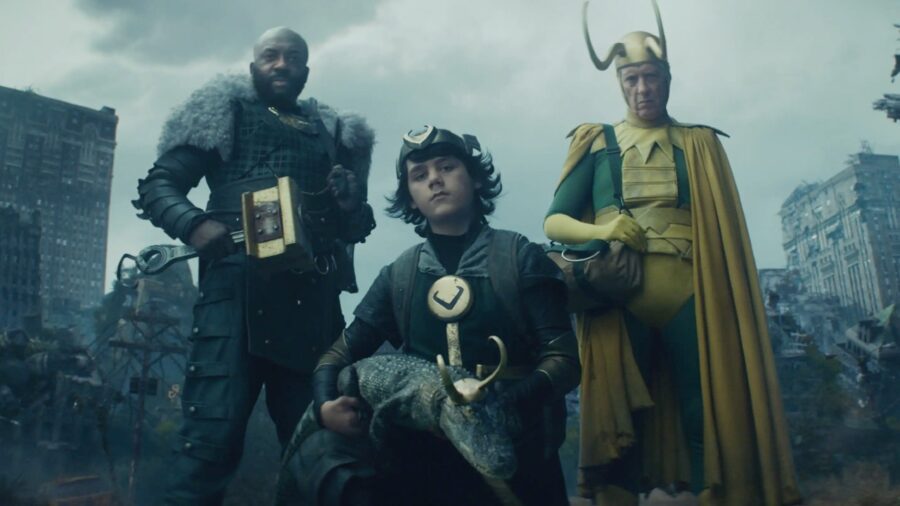
No longer do fans have to deal with the very real feelings of grief that come when a popular character that they’ve come to love kicks the bucket! It used to be that for a character to come back from the dead, some sort of convoluted retcon—they never died in the first place—or convenient magic/sci-fi device had to be employed. In other words, an effort was made, no matter how small, to make a character’s return at least somewhat believable.
The concept of infinite versions of each fandom with infinite variants of every character cheapens stories and erases any dramatic stakes.
Now, thanks to writers’ obsession with the sci-fi trope of multiverses, a show like The Flash TV series can have over 15 different versions of the same character. J.J. Abrams wants to remake Star Trek II: The Wrath of Khan instead of creating an original sequel to his 2007 Star Trek film? No problem, make it a different Khan from a parallel universe. The concept of the multiverse has led to a lot of unoriginality and, frankly, laziness in many sci-fi/fantasy fandoms.
The sci-fi trope of the multiverse has created a pop-culture landscape where nothing really ends. There’s no finality to anyone’s story. The Sam Raimi Spider-Man trilogy may have gone out on a less-than-stellar note, but does that mean we need to resurrect the corpse of a dead franchise nearly twenty years after it ended just to feed some 30/40-somethings’ nostalgia craving? Well, Spider-Man: No Way Home made almost $2 billion worldwide, so the answer is apparently yes.
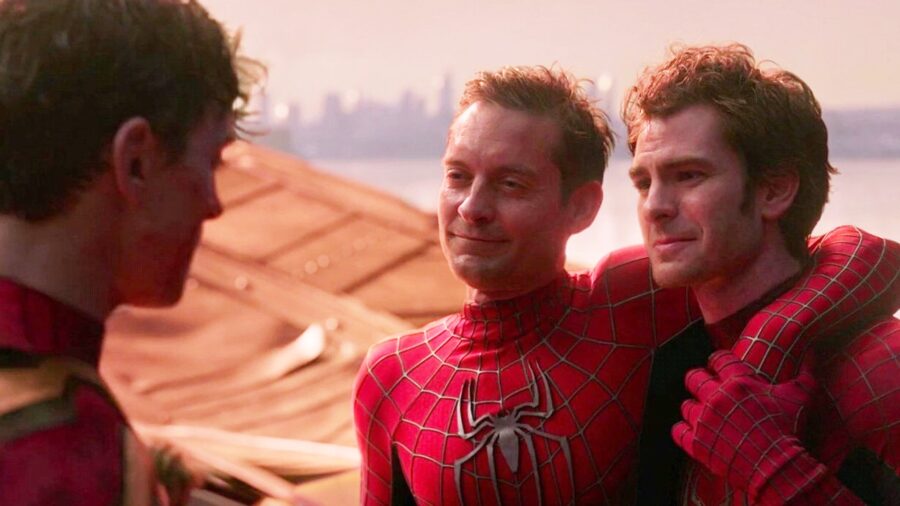
The ending of this year’s Flash went so far as to use the sci-fi trope of the multiverse to bring back several dead actors as grotesque CGI zombies. Most of them looked so bad they would have had to climb out of the Playstation 3 that rendered them and ask for directions just to get close to the uncanny valley.
In the case of the Terminator series, the sci-fi trope of a multiverse full of alternate timelines actually weakens the original two films.
Is nothing sacred in Hollywood anymore? Well, okay, resurrecting dead actors to hawk products has been going on since those Fred Astaire Dirt Devil commercials from the ’90s, but you catch our drift.
It was bad enough when every studio wanted to copy Marvel’s idea of an interconnected cinematic universe—does anyone remember Universal’s failed Dark Universe?—but now studios want all universes to connect with each other. Spider-Man: Into the Spider-Verse, despite being about this very sci-fi trope, was a fairly contained thing. After all, what could be more separate than animation and live-action?
According to this year’s follow-up Spider-Man: Across the Spider-Verse, the answer is everything. Not only did Across the Spider-Verse have Oscar Isaac’s Spider-Man 2099 hint at the events of No Way Home, but it also featured a live-action scene set in the convenience store from Venom.
At this point, even hardcore fans have lost track of just how many times our Rick and Morty have jumped universes and taken up with brand-new versions of Morty’s family after those universe’s Rick and Morty suffer some kind of grisly fate.
That now means that the Sam Raimi Spider-Man films, the Andrew Garfield Spider-Man films, the MCU, Sony’s animated Spider-Verse, and Sony’s live-action Spider-Manless Spider-Verse, as well as every animated incarnation of Spider-Man ever created, all exist in the same multiverse. It should go without saying, but not everything has to connect, nor should it.
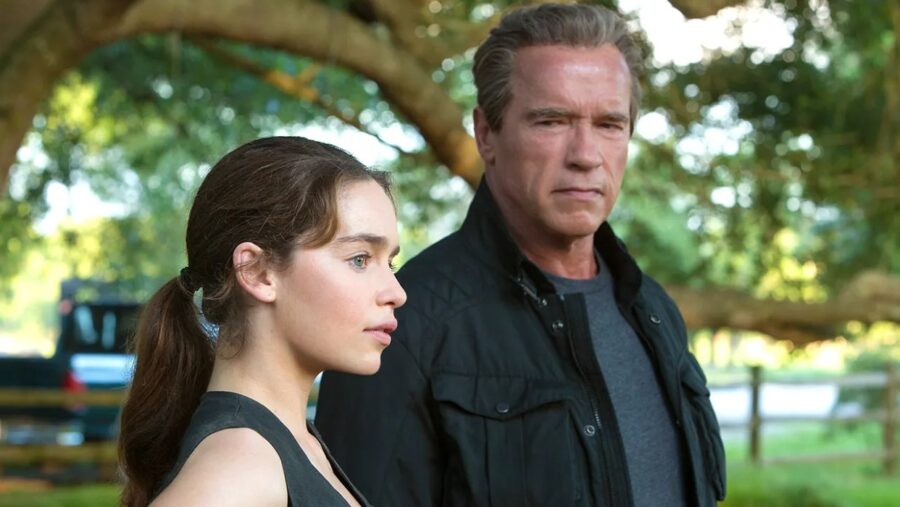
It’s not just comic book properties that are guilty of this. The Terminator timeline is currently so screwed up, thanks to the alternate universes shown in both Genisys and Dark Fate, that it would take a Wikipedia article just to make sense of it.
In the case of the Terminator series, the sci-fi trope of a multiverse full of alternate timelines actually weakens the original two films. There’s no satisfaction at the end of T2, no sense of triumph over an averted apocalypse, once you take into account all the sequels that show Sarah Conner’s actions didn’t prevent anything.
There have even been talks recently of Lucasfilm using the multiverse sci-fi trope to cancel out the sequel trilogy. Look, there were plenty of reasons to both love and hate the Star Wars sequels, but like it or not, they happened.
It’s better just to move on than to use some cheap alternate universe to undo three whole movies’ worth of story—even if at least half of that story was just one film undoing the events of the previous film and then another film undoing most of what the second film undid.
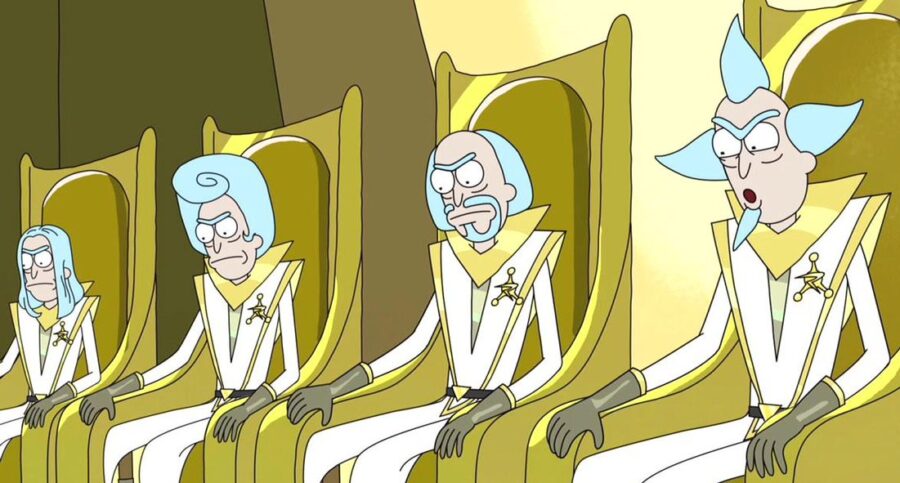
The multiverse has become such a played-out and cheap sci-fi trope that the popular series Rick and Morty makes fun of it constantly. At this point, even hardcore fans have lost track of just how many times our Rick and Morty have jumped universes and taken up with brand-new versions of Morty’s family after those universe’s Rick and Morty suffer some kind of grisly fate.
For all of the best sci-fi/fantasy franchises to move forward, they’re going to have to abandon the Multiverse sci-fi trope or at least tone it down. Sure, fans want cheap nostalgia and fan service, but what they want even more is for characters’ deaths and sacrifices to mean something. They want situations that can’t be undone by popping into a parallel timeline and snagging a different variant of a fallen comrade.
Most importantly, geeks want to argue over which version of something is better. How are we supposed to argue over which Batman movies are better, the Michael Keaton ones or the Ben Affleck ones, when now, thanks to the multiverse, they’re technically part of the same series?
Creators, we’re begging you. Please, lose the multiverse sci-fi trope! Oh, and the answer is Keaton. Always Keaton.












